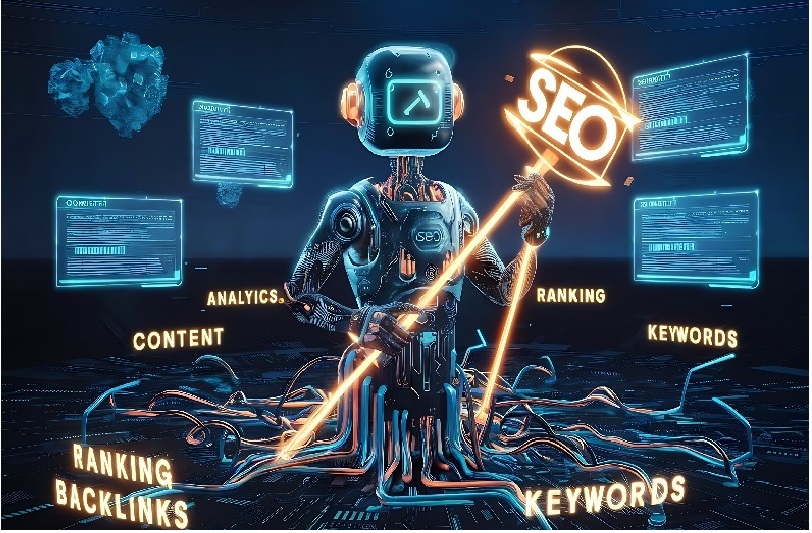
The world of search is evolving rapidly, and 2025 promises to be a turning point. AI-powered search experiences, driven by engines like SearchGPT and other advanced AI systems, are reshaping how users discover information. These platforms prioritize context, relevance, and conversational interactions, making traditional SEO tactics less effective. To stay ahead, businesses must adapt their strategies to align with these emerging technologies.
Here’s a roadmap to optimizing your digital presence for AI-driven search engines:
1. Understand Conversational Search Intent
AI search engines thrive on understanding natural language. Unlike traditional keyword-based systems, they interpret user queries in a conversational manner. This shift requires:
-
Analyzing user intent: Go beyond keywords to understand the broader questions and problems users are trying to solve.
-
Optimizing for long-tail keywords: These mirror how users phrase queries conversationally, capturing specific intents.
-
Implementing FAQ sections: These help address common queries directly and improve contextual relevance.
2. Create High-Quality, Contextual Content
AI prioritizes content that’s highly relevant and well-structured. To stand out:
-
Focus on expertise, authority, and trustworthiness (E-A-T): Build content that demonstrates deep knowledge and credibility in your niche.
-
Utilize topic clusters: Organize content around core topics with interlinked subtopics, enabling AI systems to grasp the breadth of your expertise.
-
Incorporate structured data: Schema markup helps AI understand and present your content effectively in search results.
3. Embrace Multi-Modal Content
AI-powered engines often integrate text, images, and videos to provide richer search results. Enhance your visibility by:
-
Optimizing images and videos: Use descriptive alt text, captions, and metadata.
-
Creating interactive content: Tools like infographics, quizzes, and augmented reality (AR) features can improve engagement.
-
Transcribing video content: Provide transcripts to make multimedia content searchable and accessible.
4. Leverage Conversational AI and Chatbots
AI-powered search engines interact seamlessly with conversational interfaces. Businesses should:
-
Integrate chatbots: Ensure your site’s chatbot is equipped to answer common questions accurately and link users to relevant resources.
-
Optimize for voice search: Use natural language and local SEO tactics to capture voice-driven queries.
-
Develop AI-ready content: Tailor content to the types of questions your audience might ask AI tools.
5. Monitor and Adapt to AI Algorithms
AI-powered search engines are dynamic, continually learning and updating. To stay competitive:
-
Analyze search performance data: Use tools like Google Search Console to identify patterns and optimize accordingly.
-
Stay informed on AI advancements: Follow updates on platforms like SearchGPT and participate in industry forums.
-
Experiment with new formats: AI may favor emerging content types, such as 3D models or immersive experiences.
6. Prioritize User Experience (UX)
AI systems emphasize user satisfaction, rewarding sites that provide:
-
Fast-loading pages: Ensure your site’s performance meets Core Web Vitals standards.
-
Mobile optimization: Design your site for seamless functionality on all devices.
-
Engaging layouts: Make navigation intuitive and visually appealing.
7. Foster Trust Through Personalization
AI engines excel at delivering personalized results. Enhance your relevance by:
-
Using first-party data: Leverage insights from customer interactions to refine content.
-
Segmenting your audience: Tailor experiences to different user groups based on preferences and behavior.
-
Offering dynamic content: Serve personalized recommendations, driving higher engagement.
8. Optimize for Local and Niche Searches
AI engines are adept at contextualizing location and industry-specific searches. Strengthen your local presence by:
-
Claiming and optimizing Google Business Profiles: Keep your information accurate and up-to-date.
-
Using localized keywords: Incorporate phrases that reflect regional dialects and terms.
-
Engaging in community-building: Encourage local reviews and participation in area events to boost visibility.
The Future of SEO in an AI-Driven World
AI-powered search engines are not just a trend; they represent the future of how we connect with information. By focusing on conversational intent, creating high-quality content, leveraging multi-modal formats, and embracing personalization, businesses can position themselves for success in this new era.
Adaptability will be key. As platforms like SearchGPT continue to evolve, staying informed and proactive will ensure your brand remains visible and relevant in a landscape dominated by AI.

Recent Comments